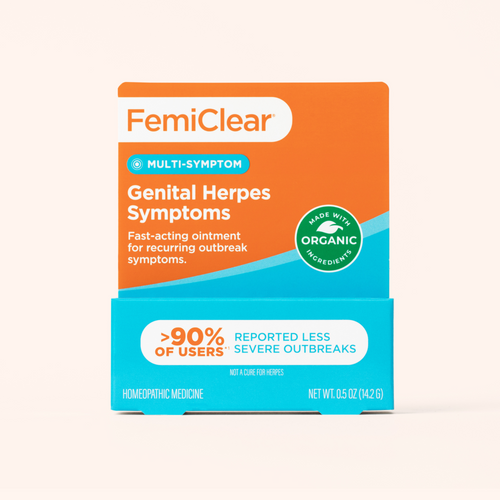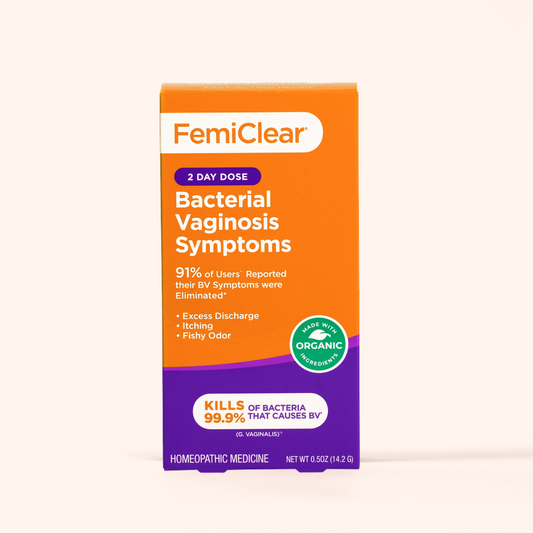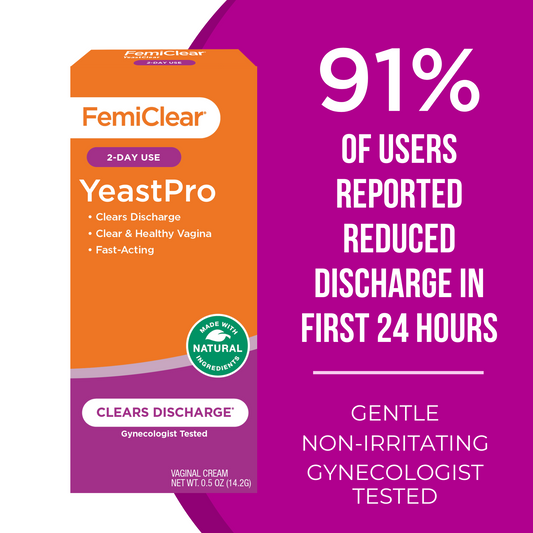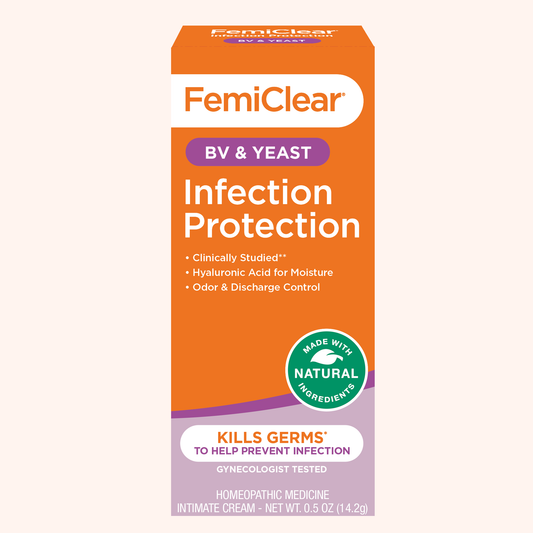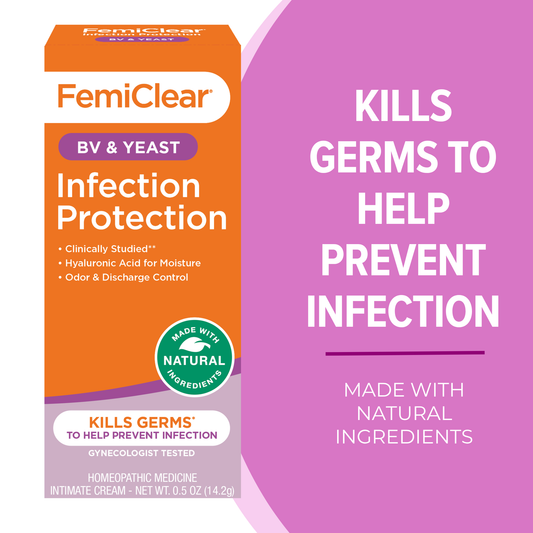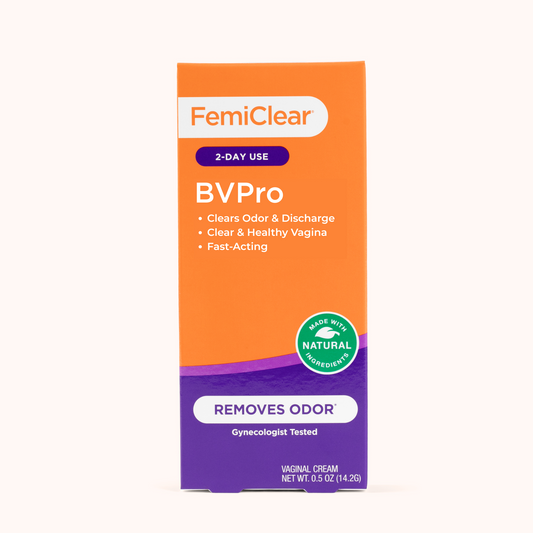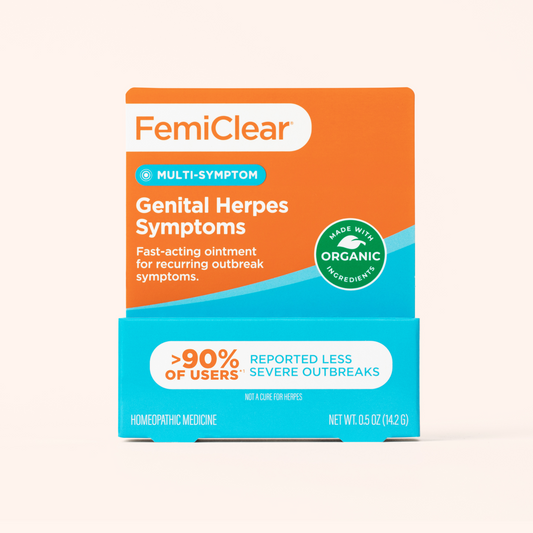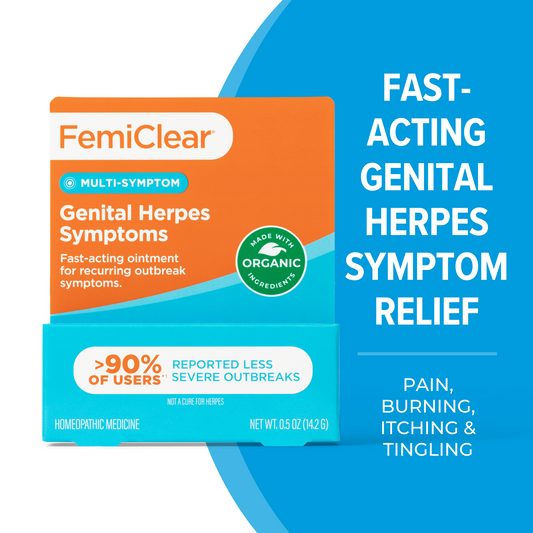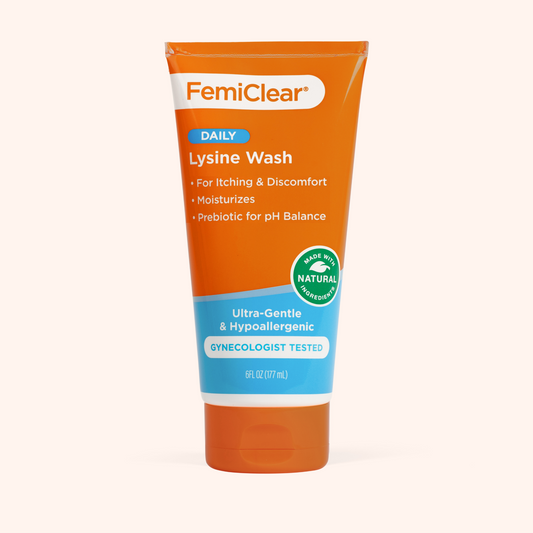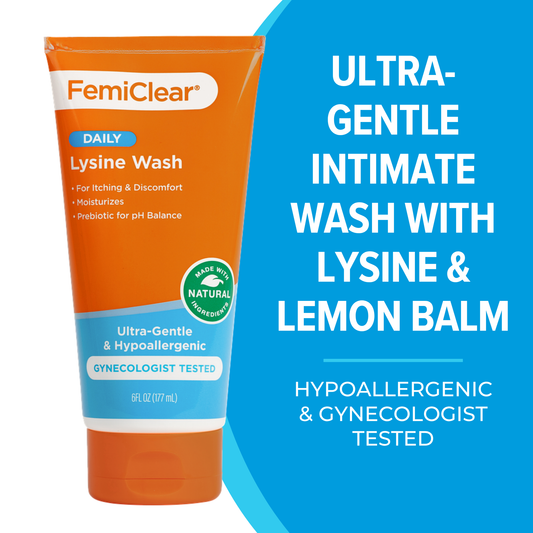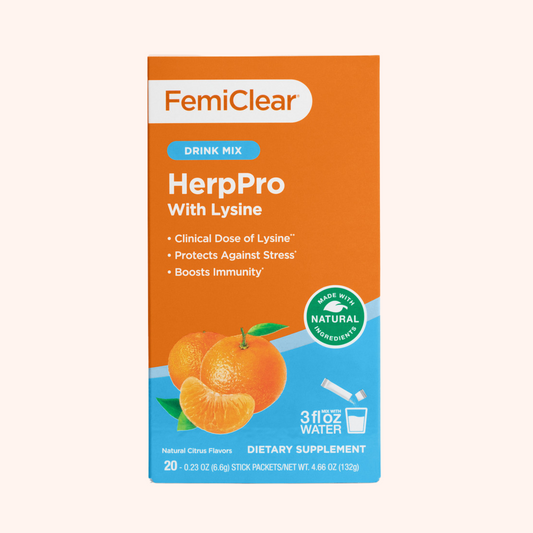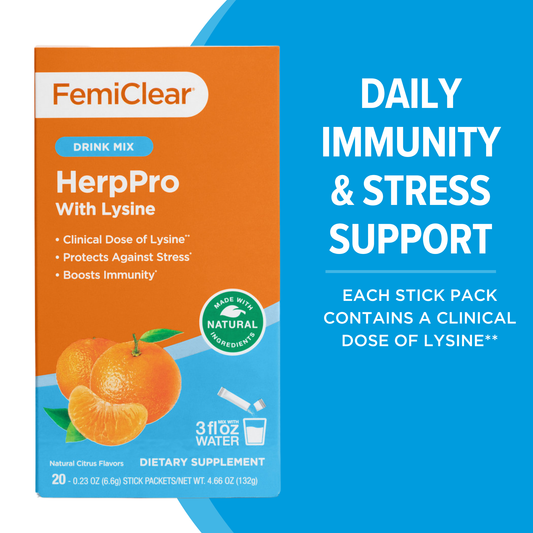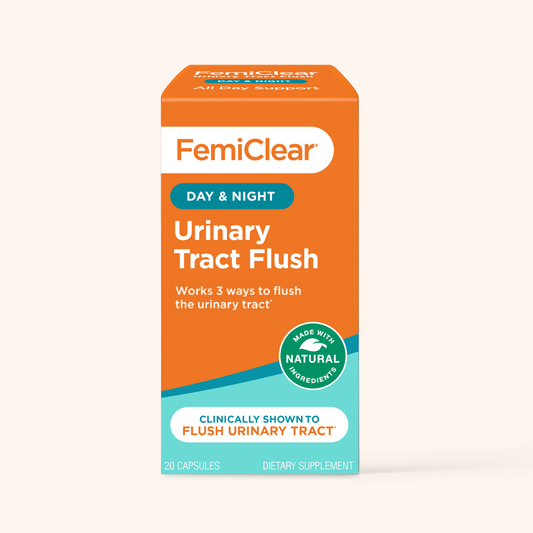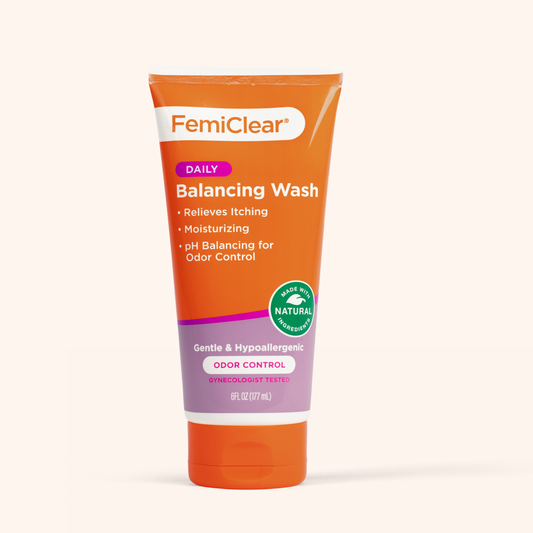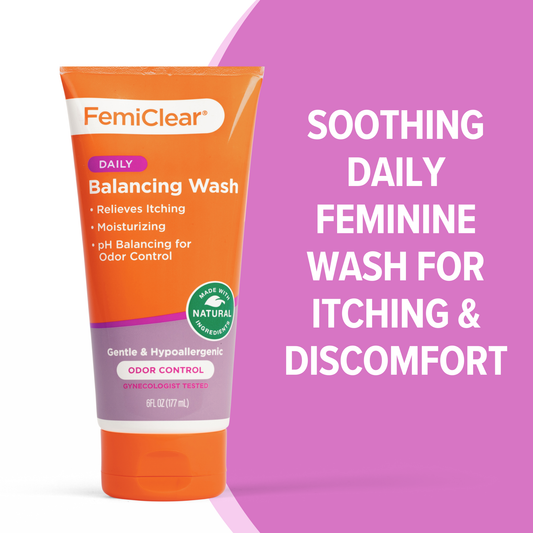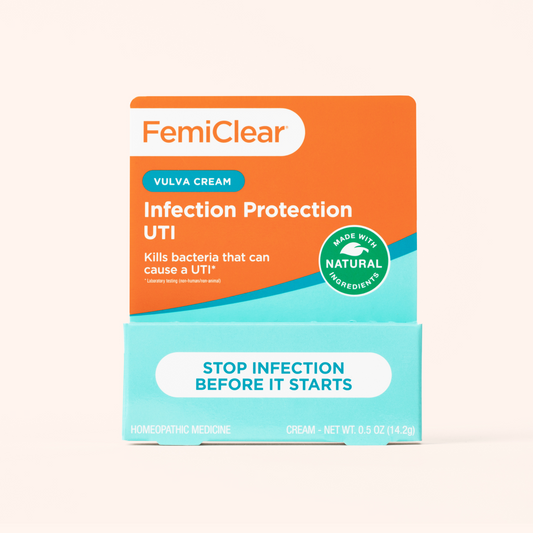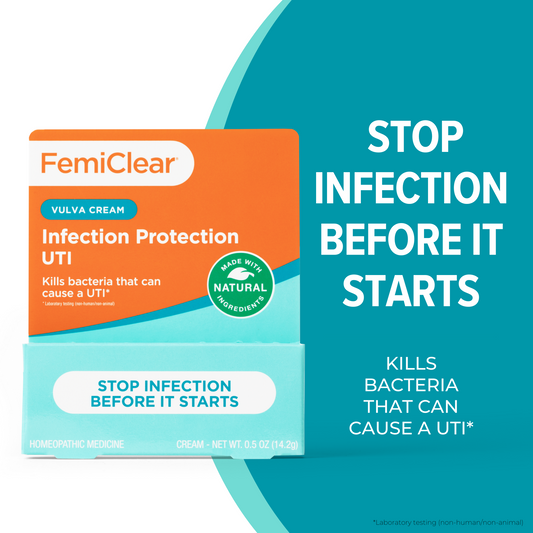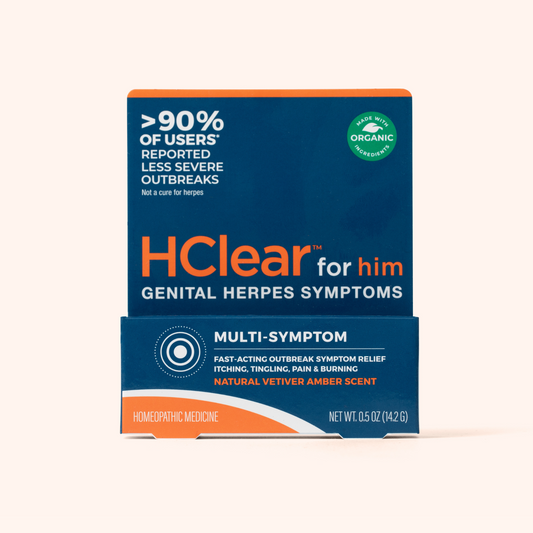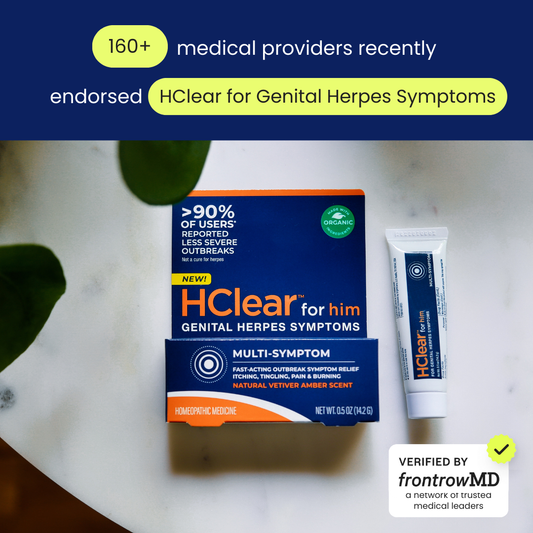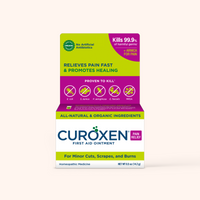Table of Contents
8 Things I Wish Someone Told Me When I Was Diagnosed with Herpes
Dec 09, 2021

A genital herpes diagnosis is not the end of your life as you know it.
Like many other people, the moment entrepreneur and motivational speaker Alexandra Harbushka got diagnosed with genital herpes at 28 years old, she went into absolute shock. “I felt like a deer in headlights,” she recalls. “I immediately asked myself: How did this happen to me?’”
Just minutes later, her initial shock morphed into fear for her future. “I began to think that everything I’d worked for was completely out the door,” she says. “I’d always tried to do the right thing and make the right choices so I could have a nice life. But after the diagnosis, I thought: ‘What was the point of all that? It’s never going to happen for me now. I may or may not be able to have kids. I’ll probably have to settle in marriage. No one is ever going to love me for me again.’ I felt as though all the things I’d worked for were being taken away.”
Today, Harbushka is in a much better place. She is happily married to a man she loves, they have an adorable little boy together, and she’s finally found inner peace — so much so, in fact, that she founded a support community called Life With Herpes to show the world that it’s possible to live a full life with a herpes diagnosis. She’s also excited about advances in herpes treatment and the expanding herpes support options—including our over-the-counter ointment, FemiClear® for Genital Herpes Symptoms and all-new Immunity & Stress Support Supplement, which can help manage herpes outbreak symptoms.
But getting from A to B wasn’t so easy. Although Harbushka is living proof that it’s possible to thrive with a herpes diagnosis, hers was a difficult journey, filled with emotional ups and downs and painful outbreaks and all sorts of revelations along the way. Here, Harbushka shares the things she wishes someone had told her when she first got her diagnosis:
- It’s Not Uncommon
Genital herpes is actually incredibly common. People tend to think that herpes is rare, that they deserve to get it because they messed up in some way, Harbushka says. But it’s widespread: One in five women between the ages of 14 and 49 have the infection and 572,000 people are infected every year, according to the CDC, though they may not know it until they get tested.
- Two Types of Herpes
A quick lesson: There are two types of herpes, herpes simplex virus I and herpes simplex virus II While most genital herpes cases are diagnosed as type II, an increasing amount of cases are being diagnosed as type I, which can be spread through oral sex. It’s possible to acquire either type from someone who shows no symptoms, explains Dr. Oluwatosin (Tosin) Goje, who leads the Gynecologic Infectious Disorders Centers in the Institute of Obstetrics, Gynecology and Women’s Health at the Cleveland Clinic. “Your partner could have no symptoms and quietly be spreading the virus. The point is, genital herpes is way more common than you think, and with many individuals asymptomatic, the statistics are thought to be underreported.
“If you’ve kissed more than three people in your life, you’ve likely come in contact with oral herpes. And statistically, you’ve likely come into contact with genital herpes, too—it’s just a matter of if you’ve caught it or not,” Harbushka explains. The problem is that there is still a stigma attached to the virus. “When people with herpes first get diagnosed, we may believe—even subconsciously—that we’ve done something bad or shameful or wrong to deserve the virus. But that’s just not true.”
- Tell Your Previous Partners
Call all of your previous partners right when you get the diagnosis. Harbushka was in the car when her doctor called to give her the news. Her best friend called to catch up on life stuff minutes later, which couldn’t have been more perfect timing. “She said to me, ‘Listen, here’s what you have to do: You have to call your past partners and tell them the news right now. Don’t wait. You’re in a state of shock and they will be able to hear it in your voice. As hard as it is to comprehend that you’ve been diagnosed with herpes, you need to call them now because you’ll be in a completely different state of digesting the news 30 days from now, even 30 hours from now.’” Harbushka did not want to make those calls in those initial moments, but she trusted her best friend and did it—and today, she’s so glad she did.
“I always tell people to make the phone calls right away,” she says. “You don’t really know what’s going on yet or how to handle it. But even though doing it right then may feel harder in the short-term, it’s easier in the long-term. I called everyone and basically just said, ‘Hey, this is Alexandra, this is weird but I just got off the phone with my doctor an hour ago…” and the guys could hear the terror and shock in my voice. We had some very real conversations.”
3.5. Be Prepared
And be prepared for a variety of responses. Real talk: Telling a past partner about your current herpes diagnosis can often reveal their true colors…and those colors may be dark. Harbushka says some of her past partners were incredibly supportive and kind, with one asking, “How can I support you right now? What do you need?” But others were not as gracious. One guy told her that he couldn’t have been the one to give her herpes, because he would “never sleep with someone like that.” Still others ignored her calls completely. But the man she was dating at the time—who was, in fact, the one who gave her herpes—was most hurtful of all: He called her a slut, and then said she was disgusting.
- Learn to Live With It
Just as how you’d cope with anything else in your life, you can live with genital herpes. Ultimately, Harbushka suggests comparing your herpes to “an annoying roommate”—one that you may get frustrated with at times, yes, but you can definitely learn to live with just fine. One of the best ways to cope is to find ways to lessen the discomfort of your herpes outbreak symptoms, which is why Harbushka sees her various herpes medications as a crucial lifeline. “The antiviral prescriptions work really well, because they allow the herpes virus to go dormant in your system overall,” she explains. But they don’t always alleviate the discomfort of an outbreak when it does occur, she continues, which is why she’s really excited about FemiClear for Genital Herpes Symptoms, our OTC treatment that helps provide fast-acting, soothing relief from outbreak symptoms.
When used in addition to antiviral treatment, FemiClear has been reported to result in less severe outbreaks, reducing itching, pain and burning symptoms in over 90% of women. “A herpes outbreak can feel like a spider is walking on your skin, so a topical ointment can help curb those tingly sensations,” she explains. An in-vitro study conducted by a third-party accredited laboratory found that FemiClear killed over 99.9% of the herpes simplex I and II viruses*. If you’re looking for a proven product, FemiClear is available in store and online at Walgreens and select Walmart stores, as well as Femiclear.com, and Amazon.com. While it’s not a cure for herpes, you can use it at the first sign of an outbreak for best results. You can also use it for the length of your outbreak, as needed.
- Don’t Settle
Ever ever ever. Harbushka ended up staying with the boyfriend she was with at the time of her diagnosis for two years after he called her a slut, and they were the worst two years of her life, she reflects. Her herpes diagnosis sent her into an incredibly dark place, one in which she came to believe that she was not worthy of love and that she was considered damaged goods. “That just goes to show how low your self-esteem can get when you are first diagnosed,” she says now as she looks back on those difficult years. “I believed I had to settle, that I would either end up with him or with someone else who had herpes. I thought, ‘Well, we’ve already been through this herpes diagnosis together, so now I have to stay.’ The longer I was with him, the longer I felt like I had a corset on and couldn’t breathe, but I still stayed. I felt like I had a rain cloud over me every day. There was no lightbulb, no color, no brightness—I was just dim.”
As her 30th birthday approached, though, Harbushka started to see the light. “When people are diagnosed, they often go through this dark phase like I did, and then all of the sudden they’re like, ‘I’ve gotta get my act together,’” Harbushka reflects now. And that’s what happened to her. “I decided I didn’t want to start my 30s like this. I had had enough. So I began to eat healthier, I exercised more, I paid off my debt, I moved to a different neighborhood in San Diego—I started dating other people,” she explains.
- You Can Date
Speaking of dating: Don’t wait until there’s a cure. “People with herpes will often think, ‘Oh, I don’t want to go on a first date because I have to tell my date the truth right away,’ and a lot of people don’t date at all for that reason,” Harbushka says. She knows people in their 60s and 70s who never married or had children because they were waiting for the cure before they even went out with anyone.
But take it from her: Don’t wait. “I don’t want people to miss out on life while they are waiting for a cure, because a cure may never happen,” she cautions. Moreover, a date doesn’t mean you’re going to marry the other person or even sleep with them. “A date can just be a date,” she emphasizes. When she first broke up with her ex-boyfriend, she believed she had to tell new guys about her diagnosis on the first date. But now she wants others to know that it doesn’t have to be that way. “I eventually learned that I didn’t need to tell people about my herpes diagnosis until I was exposing them. I learned that a date can just be two people meeting for a yoga class or a cup of coffee or a trip to the farmers’ market. That was a big adjustment for me, to accept that this person may or may not be my boyfriend—that it can just be a fun afternoon.”
- Lose the Guilt
When you do find someone special, try not to feel guilty about your diagnosis. Though she had no idea she’d one day marry him, one of the first people Harbushka told about her herpes diagnosis was her future husband. He was in the office when she came back from that fateful call with her doctor, and he asked her if she was okay since she looked teary and out of sorts. But they didn’t start dating until four years later. “Then I was like, ‘Hey, do you remember that day in the office years ago, when I told you I had herpes?’ He did. And once he understood exactly what it was, he said, ‘I don’t care.’ I love every part of you, and herpes is a part of you.’”
Yet even though he was so loving, Harbushka felt guilty. “It took me a little time to get over that guilty hump, because I loved him so much and I didn’t want to hurt him. I was so worried that I was going to pass it on to him,” she says. To this day, Harbushka’s husband still hasn’t contracted herpes, but even more important, she’s stopped feeling worried about the possibility. “Now I’m finally like, ‘Okay. It’s not an issue.’ I don’t have to feel bad about this.”
- You CAN Have Kids
You really can. Many people who get diagnosed with herpes think they may not be able to have kids. “But actually, having herpes has zero to do with fertility and the health of the baby in utero and post baby,” points out Harbushka. “The only time you’re potentially at risk is during delivery. If the mom does not have the outbreak, she has a less than 1% chance of transmitting it to her child.”
In the end, the worst part about herpes is often the shock of the diagnosis, followed by the first couple outbreaks. Then things tend to get better. “The longer I’ve had herpes, the less severe my symptoms have been—your body just learns to adjust,” explains Harbushka. That’s because your body develops antibodies to help you out, explains Goje. But Goje is quick to point out that even antibodies don’t always help. If your immune system isn’t fully functioning—for instance, you have a cold—you may be prone to an outbreak.
But while herpes may not have a cure, Harbushka emphasizes how important it is to live a full and joyful life no matter what. “My last piece of advice is to not think of yourself as a lesser person. It’s not easy to do, but it’s worth it. It’s so, so worth it.”
Related Articles:
3 Ways to Disclose You Have Herpes
How To Support Your Mental Health When You’re Diagnosed With Herpes
Can Stress Cause a Herpes Outbreak?
Herpes FAQ - Everything you need to know
*Independent laboratory test measured the antiviral activity of FemiClear using a suspension time-kill procedure against herpes simplex I & II. Not a cure for herpes or a replacement for prescription antiviral medication.
Dec 09, 2021

Multi Symptom Relief for Genital Herpes Symptoms
Kills 99.9% of the herpes simplex I & II viruses*
Learn More